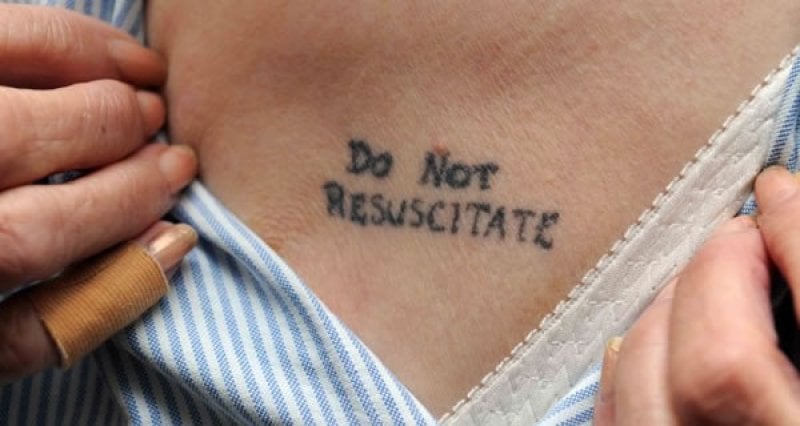Doctors at a Florida hospital’s emergency department were startled in May [2017] to discover the words “DO NOT RESUSCITATE” tattooed on an unconscious man’s chest.
…
Should they respect the request or not? The default position for contemporary ethics is always to respect a patient’s autonomy.
…
True, the unknown patient had not filled out Florida’s official advance directive form. But a tattoo indicated “forethought and mindfulness”. Fortunately, with the help of social workers, the hospital managed to identify him. The patient had wandered away from a nursing home and – to the doctors’ relief — he had actually completed an official “do not resuscitate” form. He died later in the day. There is a serious side to this peculiar anecdote.
…
People change their minds more quickly than they change their tattoos or formal instructions. They may not be a faithful representation of the frame of mind of a patient at the very moment when they are most needed. A heart attack victim may want to cling to life; a quadriplegic may settle into his new circumstances; a demented person may be happy. Binding instructions for doctors written months or even years before may be wrong. And if they are, the patient won’t be around to explain things. He’ll be dead.
Read full, original post: The bioethics of tattoos































